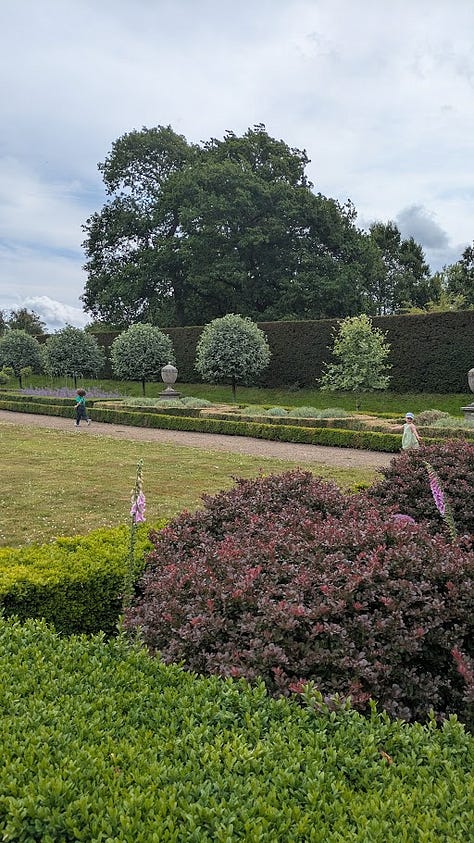Over the last year or so, something really strange has been happening to me.
I’ve become addicted to my phone.
I think it’s been going on a while longer than that, but it was only when I started to monitor my screen time that I realised that I have a problem.
How much of this dependence is actually my fault?
And what’s changed on our handheld portals that’s made the online world so utterly irresistible?
Having not grown up with smartphones, I think the transition from being accessible only from the house phone, then MSN Messenger, to SMS, and finally to ‘always on’ has been even more significant.
A couple of weeks ago, I noticed that my screen time was often reaching five hours per day. This felt like a lot of time I was spending doing something, and weirdly, I could barely remember what I had looked at. Other than chatting with friends and replying to the odd email, hours were falling through my fingertips, and I had absolutely nothing to show for them.
Well, that’s what I thought.
The reality is a lot more sinister than that.
I did have something to show for the lost hours: a short-circuited reward system (I’ll get back to that.)
In terms of adult screen time, there’s not a lot of consensus in the scientific world about what constitutes too much. Back in 2022, Time posed the same quandry, instead concluding that it’s what we’re looking at that’s more of a problem than how long we’re doing it.
Social media is, of course, the main perpetrator— and my own Achilles heel.
This brings us back to the point of: whose fault is it anyway?
I often write in this newsletter about the importance of approaching the online world with a critical eye. But this can be very, very difficult when it’s completely counterintuitive to the way in which social media platforms are built.
We know that platforms like Facebook, Instagram, X and TikTok are developed with the core purpose of keeping us online for longer. The more time we spend on the app, the more ads they can show us, the higher their revenue and the easier it is for them to harvest our data to share with third parties.
Social media apps do this by tapping into our most basic instincts and exploiting our reward systems.
Essentially, apps like Instagram have a variable reward system, where we receive a variety of rewards at varying intervals, establishing a feedback loop of dopamine whenever we receive interactions.
And it’s this feedback loop that we’re addicted to. In fact, we are so hooked on it that we will likely ignore the negative side effects, like a need for compulsive checking, or even a fear of being away from our phones.
One 2022 study refers to phone addiction as “digital dementia” having found that adults who engage in excessive screen time had lower grey matter volume— which could impact everything from memory to sleep and even emotions.
Sleep is a key factor in screen time addiction, as this study found that looking at a screen in the evening can delay melatonin production.
So, all of this data is pretty conclusive: smartphone addiction is bad… but how can we break free if the platforms are literally built to trap our brains in a cycle?
I am also worried about the actual content we’re seeing, and what this is doing to our perspectives on the real world. Remember when Meta, owner of Facebook and Instagram, sacked off independent fact-checkers in favour of “free expression”?
Zuckerberg has filled a glass bottle with inaccurate and rage-baiting content, and lit it with the fire of delicious dopamine… no wonder everything is burning.
My gut feeling is that this is causing a significant dip in empathy across the board. Take the age-old argument of immigration, for example. Facebook is filled with fake news stories (and even AI-generated images and videos) telling us that floods of immigrants are coming to our shores to steal our jobs and worse… seeing this content every single day turns the individual people into a force. A force with a threatening motive.
The data is still very fresh, but there are a few studies like this one that suggest heavy social media users do, in fact, have lower empathy, and even higher rates of narcissism (but that’s a whole newsletter topic for another time).
Putting the data aside, I knew I wanted to use my phone less. I try to imagine what it’s like for my daughter, looking up at her Mam and seeing someone looking at a screen instead of engaging with her. She will wonder what’s so interesting about that tiny black mirror and why it’s taking me away from her.
Last week, I decided to take a more conscious approach to picking up my phone. For over a week now, I’ve managed sub-three hours of screen time every single day, with just two hours on some days. This is a reduction of more than half.
I’ve noticed that I suddenly have a lot more time. I play with my daughter more, and it may be a coincidence, but her behaviour has improved because she’s no longer competing for my attention. I’ve read more of my book. I’ve watched full shows without a second screen distracting me.
All of this can only be positive.
I have noticed that I am still unlocking my phone hundreds of times a day, but the amount of time I spend on the apps is significantly lower. This is likely because it’ll take a while to overcome the habitual checking. I’ve found it easier to simply put my phone down and physically out of reach to stop this from happening when chilling out in the evening, for example.
I am interested in hearing about whether anyone else has noticed that phone addiction has crept up on them in the last few years, and what you’re doing to overcome it.
Let me know in the comments below or reply to the email for a chat!
It was HOT last week. I don’t cope well in the heat, especially at home as we (obviously) don’t have air con, and our house was built to keep the warmth in. We did have a canny visit to our local National Trust spot with
+ kids which was super fun— my daughter trying, and failing to keep up with his eldest pictured below.


I’ve also enjoyed:
🎧 Loyle Carner - hopefully !
🎧Kneecap feat. Mozey - THE RECAP
See you next week,
Ellen x
💌 About this email
I’m Ellen, and I write about mental health for the chronically online. I am a freelance copywriter, strategist and web designer, and I work from home with my husband, Craig, at Content By The Sea. We have two rescue greyhounds, Potter and Harmony, and a toddler.
I started this newsletter in March 2020 and have sent over 200(!) emails; currently, I have over 1,300 subscribers. I write about a wide variety of topics, including diet culture, my love of running, jealousy, my life falling apart, mam guilt, and this dystopian world we all live in.
💛 How you can support me
If you like reading my weekly emails, you can give me a kickback in one or more of the following ways:
📨 Share this post
📬 Subscribe for free (if you haven’t already!)
💬 Leave a comment on this newsletter







I am aware of my screen time, and reading this has reminded me I am online again far more at the moment. I pop timers on apps, then ignore them. I try and read when I go to bed and remember that merge game "needs" to be merged and an hour later when I run out of energy I'm too tired to pickup my book so I go to sleep ... The healthy version would have been to pick up the book and read! I check notifications constantly!
One plus side... Phone is always on silent when at home so I'm not bothered by the pings of the notifications so if I DO put the phone down I can ignore that .....
I go in cycles between cutting back on screen time, and using it too much.
I've just refund substack so I have to engage with articles!
It's a tough call, especially when alla I do want to do it put paint onto a canvas!!😂
As always - love your writing. And as you say WHAT we look at matters. Reading your email is different to me scrolling Instagram.
It’s tricky because I tell myself checking in part of my business.
And some apps leads to others.
when I pick up my phone to listen (or watch) a podcast I often then tap on to insta/linkedin 😬
But I love our holiday each year when I just don’t check it at all. I read and read my kindle. Stare out of the window at a new view. 👌